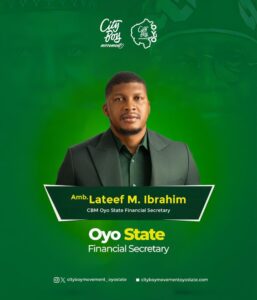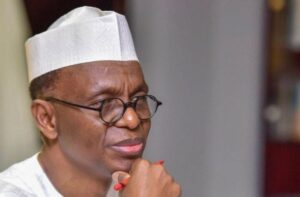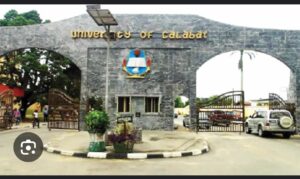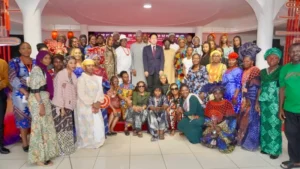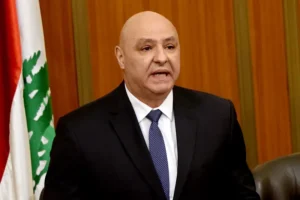
In 1984, when President Shehu Shagari was in office (1979–1983), the late Chief Obafemi Awolowo famously warned that “Nigeria’s economic ship is heading for a rock, and unless it is steered away, it will surely hit that rock.” Characteristically, many dismissed Awolowo as a prophet of doom—until the military struck and took over the government.
That same year, a brand-new Peugeot 504 cost just ₦5,000. Today, hardly can any graduate afford even a used version. Buying a “Tokunbo” (foreign-used) vehicle now often calls for celebration in churches, mosques, or shrines. Indeed, how are the mighty falling!
Successive governments—military and civilian alike—have attempted to rescue the economy, albeit with limited success. Each administration has had its wins and failures. Yet, the nation continued to grapple with a fragile, comatose economy. Then came President Bola Ahmed Tinubu, the so-called “new sheriff in town,” who boldly pressed the reset button.
When Mahatma Gandhi banned the importation of foreign cloth into India, he proclaimed, “If Indians cannot clothe themselves, let them walk naked.” This symbolic act spurred a domestic revolution in textile production, turning India into a global powerhouse. The Tinubu administration’s controversial economic policies—labelled “T-Pain” by critics—may well be Nigeria’s equivalent of Gandhi’s tough love. No pain, no gain, as the saying goes.
Today, every state and local government in Nigeria is receiving historically high allocations from the federal purse. If any governor now fails to perform, it cannot be for lack of funds—but rather a lack of vision. Government spokespersons such as Bayo Onanuga and Sunday Dare have chronicled some of the administration’s early successes. Notably, long fuel queues have vanished, prolonged ASUU strikes are a thing of the past, indigent students now have hope through NELFUND, and the price of a bag of rice is gradually reducing. Cocoa farmers are experiencing a boom, signalling the return of agricultural pride.
It’s important to note that President Tinubu has been in office for only 24 months. The administration has already repaid Nigeria’s debt to the International Monetary Fund (IMF), an achievement surprisingly ignored by critics like Peter Obi. Meanwhile, questions have arisen about fresh loan requests. Senator Shehu Sani, a known supporter of the President, even expressed doubt on X (formerly Twitter), questioning the rationale behind seeking loans when revenue seems high.
However, a simple explanation lies in infrastructure development. Similar to President Muhammadu Buhari’s administration, which secured Chinese loans for railway lines and trains—now operational between Lagos and Ibadan, and Abuja and Kaduna—the current government aims to accelerate infrastructural growth. As one professor from LUTH remarked in 2022, “One thing I appreciate about this government is the train from Lagos to Ibadan—it makes life easier for me.”
Politics of Coalition: A Path to Nowhere?
On the political front, how did we get here? Following the annulment of the June 12 election, Nigeria experienced years of military rule and transition arrangements. The return to democracy in 1999, with President Olusegun Obasanjo at the helm, established an “unwritten constitution”: Nigerian presidents are expected to serve two terms. This pattern has largely held, despite the interruption caused by the death of President Umaru Musa Yar’Adua, whose vice-president, Goodluck Jonathan, completed the tenure and went on to win his own.
Now, murmurs of coalition politics are growing. While the constitution guarantees freedom of association, the motives behind recent political manoeuvrings are unclear. Is the aim simply to send Tinubu back to Lagos? If so, the timeline is off—his tenure runs till 2031, should he secure a second term.
The proposed coalition faces significant hurdles. If Peter Obi abandons the Labour Party, he risks losing 80% of his loyal base—supporters who view him as an alternative to both the APC and PDP. If Atiku Abubakar leaves the PDP, he may forego his final chance to contest, given his age (77). Nasir El-Rufai’s whirlwind journey across three parties (APC, SDP, ADC) in under four months reflects political desperation rather than clarity.
Only two political parties—APC and PDP—boast full ward-level structures nationwide. The Labour Party’s “Obidient” movement was a surprise in 2023, gathering over six million votes without a deep grassroots presence. However, should Peter Obi begin to align with unpopular figures or forces, it could be his political undoing. Building a party structure takes years, and seasoned politicians know this. If the coalition isn’t a long-term plan for 2031, it risks collapsing before then—returning Nigeria’s political climate to the familiar refrain: “Unto thy tents, O Israel!”
Food Security and Inter-governmental Collaboration
Dear President Tinubu, at your next Council of State meeting with governors, please encourage urgent collaboration on food security. Reviving inter-state agricultural partnerships—like the once-promising LAKE Rice initiative between Lagos and Kebbi States—could prove invaluable.
Alternatively, regional commissions should be mandated to develop actionable strategies to tackle hunger across the six geopolitical zones. As the Yoruba saying goes, “Ti ounje ba tan ninu ìsé, ìsé busé”—if hunger is removed from poverty, then poverty has been defeated.
Congratulations on your second year in office, Mr President. May the promise of Renewed Hope continue to translate into tangible progress.
…Prof. Adeniyi Olowofela,
Commissioner representing Oyo State at the Federal Character Commission (FCC), writes from Abuja.


